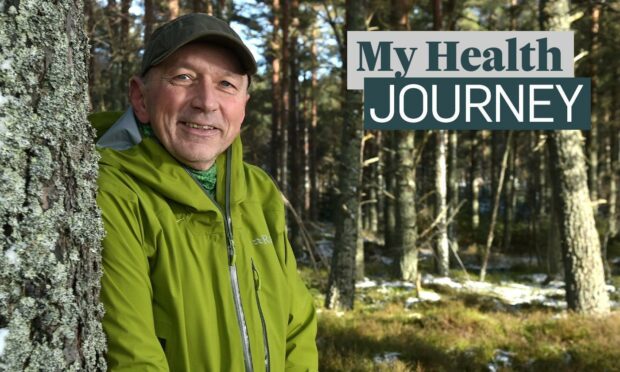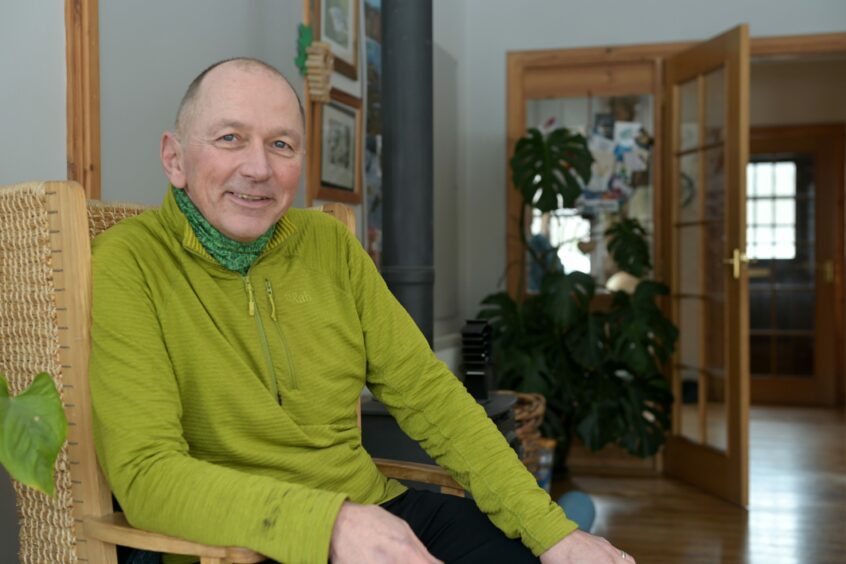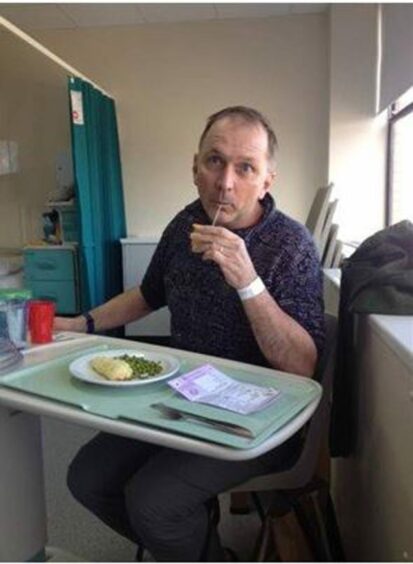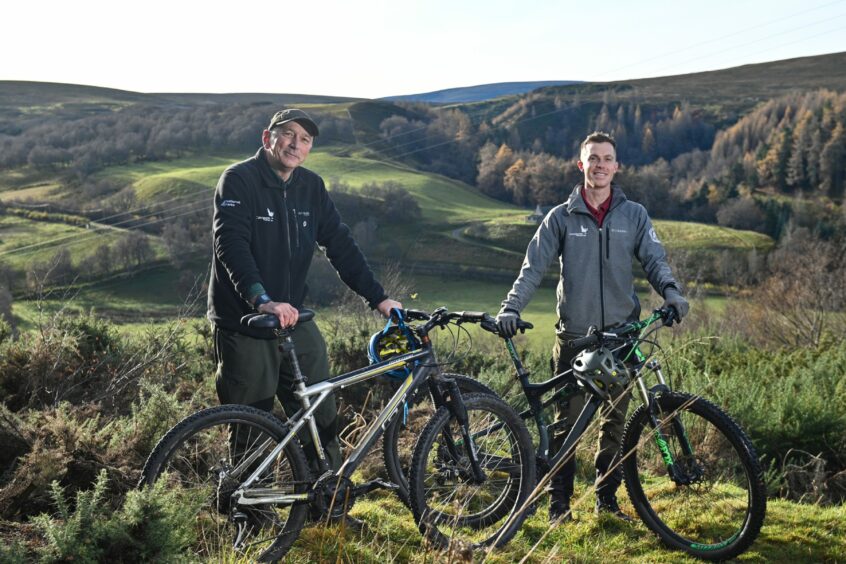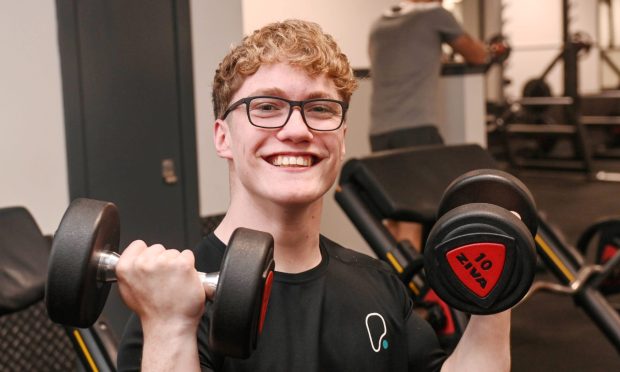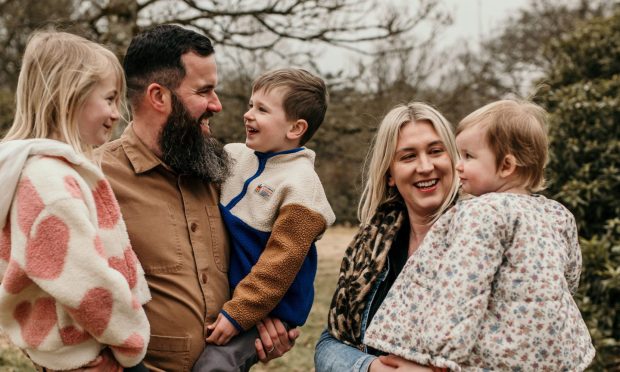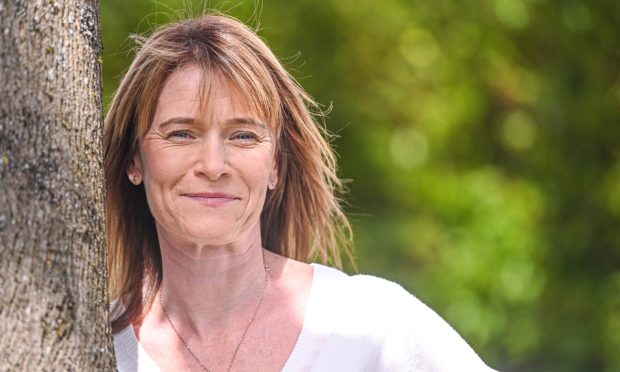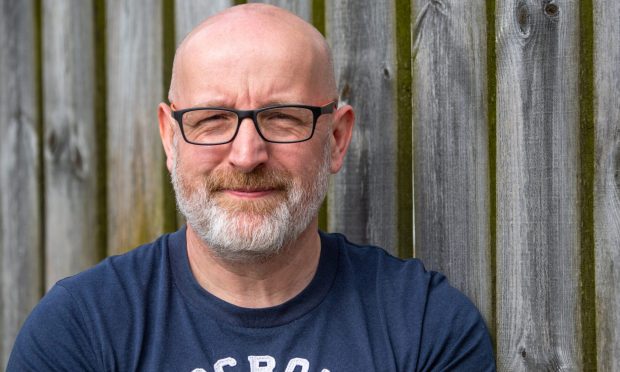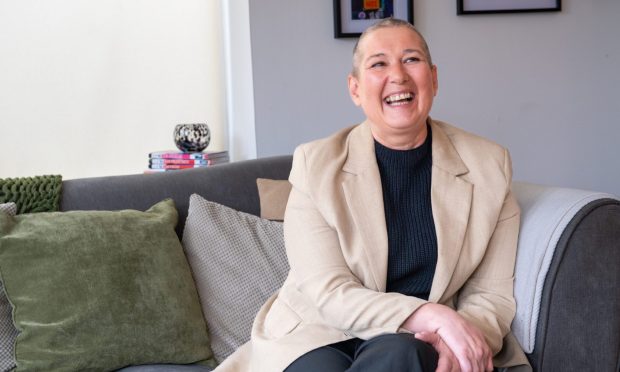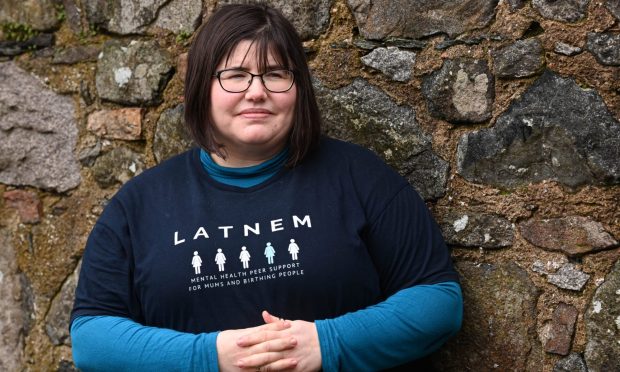A north man has told how he is “incredibly lucky” to be alive after falling ill with a life-threatening virus that left him in hospital for three weeks.
Pete Crane initially thought he’d caught a bad bout of the flu when he started to feel unwell while working at the Cairngorm National Park.
But the 60-year-old thought it was a “bit weird” that he couldn’t remember the name of his colleague during his shift.
Fortunately, it didn’t take long for his wife Lorna, 54, to realise there was something seriously wrong. He was taken to Raigmore Hospital in an ambulance that weekend.
Pete, of Nethy Bridge, near Aviemore, was soon diagnosed with viral encephalitis, inflammation of the brain caused by a virus that can be fatal.
“Not only was it lucky that Lorna spotted that it wasn’t man flu, but when I was in Raigmore within a couple of hours I was in an isolation ward and being treated, I believe, for a few different things but one of them was viral encephalitis,” Pete said.
“I was incredibly lucky to get an early diagnosis.”
I was determined to get better
Medics were able to confirm Pete’s diagnosis by carrying out a lumbar puncture procedure to check fluid in his body for signs of viral encephalitis.
The father-of-two was kept in hospital for three weeks in April 2017 and was given antiviral medicine to help him recover from the serious condition.
Pete, who works as head of visitor services at the park, fell ill after the herpes simplex virus – which commonly causes cold sores – entered his brain.
Viral encephalitis can leave you experiencing a range of issues as a result of the injury to brain tissue, affecting how you think, feel and behave.
Memory problems are also an issue that Pete encounters and he works hard to get through them.
“I saw a specialist in the hospital. She came up to me and held my hand and looked me in the eyes and said not only had she treated this before but she was very optimistic I was going to make a good recovery,” he said.
“That really inspired me to work hard at getting better.
“And so many people over these three weeks came and visited me, and without realising it, their conversation got my brain working.”
Viral encephalitis: ‘I’ve had my down days’
Pete was so determined to get better he asked Lorna to bring in a notebook and his computer. He was keen to write down the names of all the important people in his life.
“In a rather obsessive way, I just kept pushing that brain to remember words and family and friend’s names and get it back working,” he said.
It’s common for people diagnosed with viral encephalitis to end up with epilepsy so his wife took time off work to care for him.
Pete describes himself as “very fortunate” because he did not suffer any seizures. He was also lucky to be able to get back to full-time employment within a month.
“I’ve had my down days, I don’t want to be overly positive.
“But I’ve not had clinical depression, and both epilepsy and depression are quite common with brain injuries,” he said.
“I think that comes down to more than luck, it was helped by my family, close friends and colleagues at work who have put up with the new me at times.”
‘It’s been hard on those close to me’
Pete was also fortunate to get support from the Encephalitis Society which helped him get a better understanding of his condition and the length of time it can take to recover.
His only frustration was finding he had to wait 15 months to see a clinical psychologist to help him manage the changes he faced.
“The hardest impact has been on those close to me,” he said.
“The Pete who went to hospital and the Pete who came out were still the same person but things had changed.
“I’m more emotional, positively and negatively. I can misunderstand things and I can forget things.”
Pete – father of Rachel, 23, and 20-year-old Jo – hopes more people will become aware of the signs of viral encephalitis.
This will help others with the same condition get access to early treatment.
If it’s not treated early enough, patients are at risk of suffering long-term complications and can even die.
He said: “I’m exceptionally unlucky to get it, but incredibly lucky for it to have been spotted.
“I’ve been very fortunate, and I would like other people who accidentally get this illness to be as fortunate too.”
We’d like to share your story
Every Friday lunchtime we highlight an incredible story about recovery, overcoming illness and bravery.
Have you overcome a health challenge, lost weight or got fit and are now in a position to help others by talking about your journey?
We’d love to hear from you as we look to offer information, insight and inspiration through our content.
You can get in touch by emailing me at charlotte.thomson@ajl.co.uk
